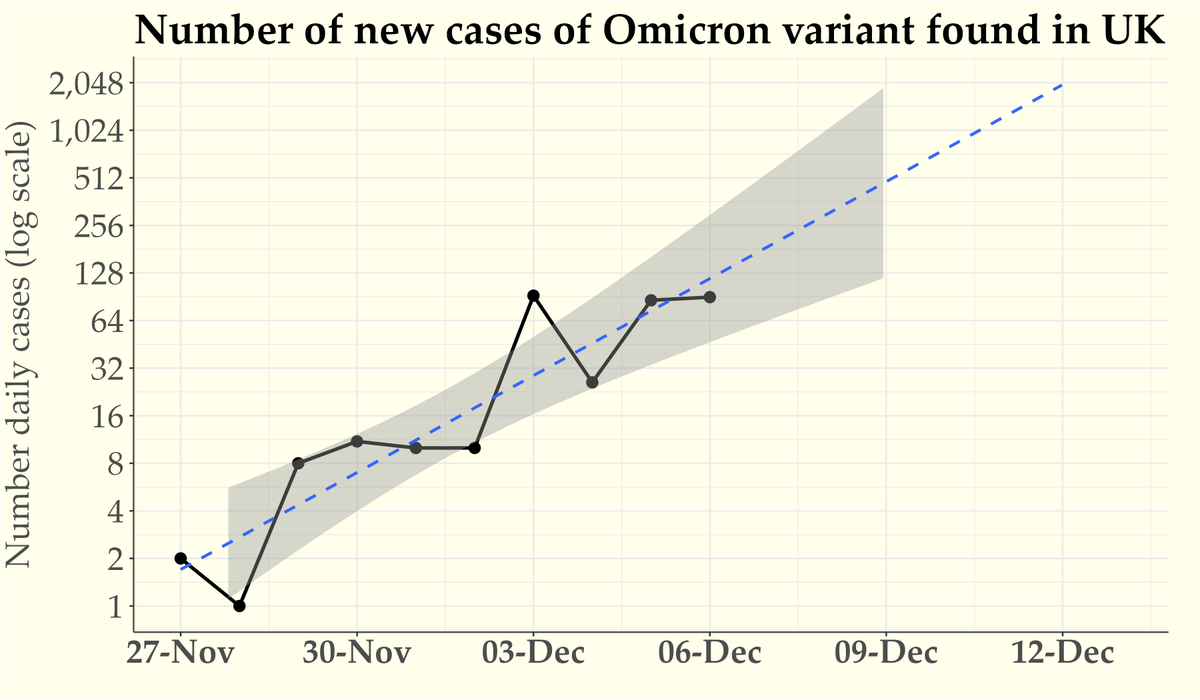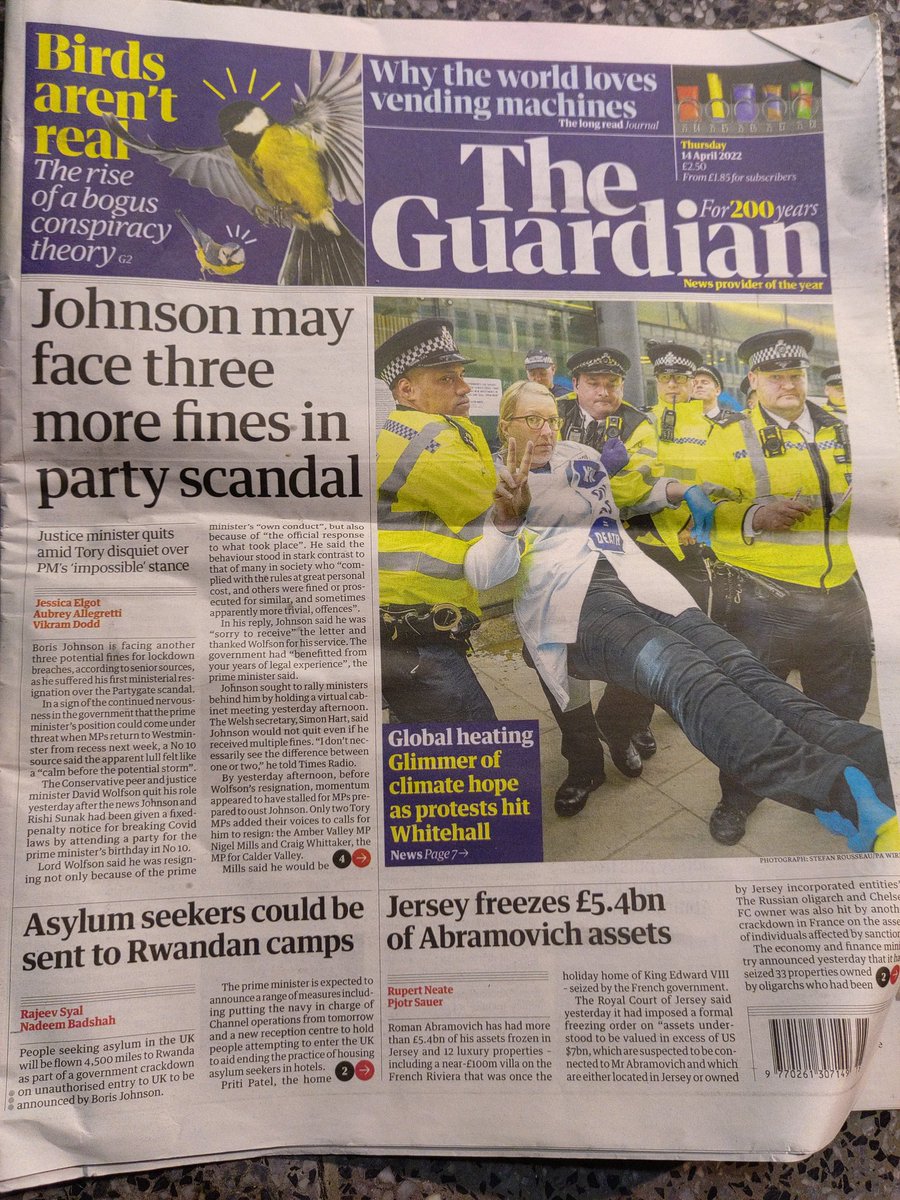Having another go at plotting UK omicron cases (previous attempt plotted total over time, which I decided wasn't very useful). Numbers are still sufficiently small to mean that noise in the data makes a big difference. But based on data so far, current doubling rate is 1-2 days. 

This estimate could be too fast, if we've got better at detecting omicron over the last few days. Or it could be too conservative if it's getting harder for us to track omicron caes as numbers increase. Mix of imported and home-grown cases also unclear. So some caution required.
Updating this graph for 7th Dec. That line of best fit is still consistent with a doubling rate of 1-2 days (midpoint is 1.6 days). Things should get clearer in a couple more days. But we don't need to wait until then to introduce precautionary measures such as working from home. 

There are additional data in the plot below, from a source with access to SGTF sample data. Alastair suggests a doubling rate of 3 days, but it looks closer to 2 days to me.
https://twitter.com/AlastairGrant4/status/1468151959957950466?s=20
Here's an updated plot for 8th Dec. A doubling rate of about 2 days is looking more likely (data so far give a current estimate of 1.65 days, which has slowed slightly). Omicron would need to be a lot milder than delta for this not to be a big problem. 

Interesting to compare the UK data with that reported in Denmark. Looks very similar. Seems likely that the numbers for 6 Dec reflect a lag and may be revised upward. Without that point, the doubling rate is 1.64 days (about the same as current UK estimate in the above tweet). 

A bit more mathematical sophistication here, using the larger SGTF data set. Once again suggests a doubling rate of a little under 2 days (although the thread goes on to consider possibility of ascertainment biases which could raise it to ... 2.5 days).
https://twitter.com/alexselby1770/status/1468697391729725444?s=20
Here's an update of this chart for 9th Dec. The number of cases that we find is only a proxy measure for the true rate of infection, but the rate of growth is what's most interesting. It sems to be converging to a doubling rate of less than 2 days (current estimate is 1.68). 

@JPWeiland has also been tracking the UK doubling rate (h/t @ForesightWisdom). This graph offers a good illustration of why it makes a difference whether this rate is 3 days or 2.5 days or (gulp) 1.6 days.
https://twitter.com/JPWeiland/status/1468713988762578946?s=20
Update for 10th Dec. When I started plotting this graph the general view seemed to be that the doubling rate might be as fast as 3 days. That shifted to "2.5-3 days", and then "2-3 days". But the data are converging on a rate of 2 days or less (current est. = 1.68 days). 

Update for 11th Dec. 633 new cases reported today, following the trend line very closely. The slope of that line *still* suggests that cases are doubling every 1.68 days. It could be slightly slower -- and I expect it will slow -- but right now 3 days is ridiculously optimistic. 

Update for 12th Dec. 1239 new cases reported today, slightly above trend line. The slope of that line *still* suggests that cases are doubling every 1.7 days.
Or maybe, as someone suggested, we should say UK omicron cases are doubling every 40 hours. That concentrates the mind.
Or maybe, as someone suggested, we should say UK omicron cases are doubling every 40 hours. That concentrates the mind.

While I'm at it, here's an updated version of this plot. Still waiting for any credible explanation of the claim that the actual doubling rate is 2.5 or 3 days. 

Thanks, though, to @kallmemeg, for this correction, which clears up one source of confusion re 3-day doubling claims.
https://twitter.com/kallmemeg/status/1469828632981954570?s=20
This projection is cases, so:
a) number of infections will be greater, &
b) we don't have capacity to measure this many cases.
In practice the rate of growth will slow, but in the short term this will largely be due to changes in *behaviour* rather than immunity.
a) number of infections will be greater, &
b) we don't have capacity to measure this many cases.
In practice the rate of growth will slow, but in the short term this will largely be due to changes in *behaviour* rather than immunity.

Update for 13th Dec. 1576 new cases reported today, following the trend line. The slope of that line *still* suggests that cases are doubling every 1.7 days.
#Every40Hours.
#Every40Hours.

• • •
Missing some Tweet in this thread? You can try to
force a refresh









